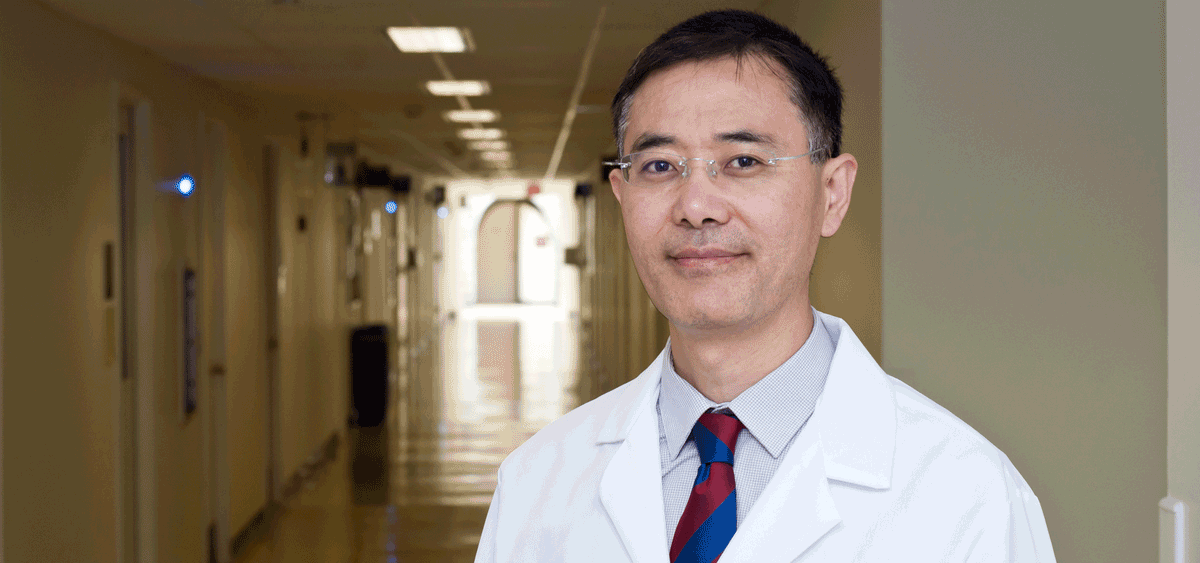
PHILADELPHIA (October 22, 2019) – Researchers at Fox Chase Cancer Center say a new, more accurate genomic sequencing classifier allows patients to avoid one in five surgeries for thyroid cancer because it more accurately classifies samples taken from thyroid nodules compared to earlier versions of the technology.
“Despite availability of molecular Panels for indeterminate thyroid nodules, we have a significant number of patients who undergo thyroid surgery,” said lead researcher Shuanzeng Wei, MD, PhD, assistant professor, Department of Pathology at Fox Chase. “But a lot of them are benign on final pathology and could have avoided surgery. The new test turns out to be more accurate. It’s a huge deal for patients.”
Fine-needle aspiration (FNA) for triaging thyroid nodules to determine if they are benign or malignant has reduced thyroid surgeries by 50 percent. The Afirma gene expression classifier (GEC) from Veracyte that analyzes the aspirated specimen has been used for several years for indeterminate FNA cases and has proven effective in identifying benign nodules, but was not as effective in predicting malignancy. So Veracyte developed the Afirma genomic sequencing classifier (GSC) to increase specificity.
Wei said the GSC has “enhanced bioinformatics and machine learning strategies to evaluate RNA transcriptome expression, sequencing of nuclear and mitochondrial RNAs, and changes in genomic copy number.”
The investigators used their laboratory database to collect data on 272 thyroid FNA samples. Patients underwent GEC or GSC tests.
Of the 194 specimens tested using GEC, 88 (45.4 percent) were classified as benign, whereas 52 of the 78 tested using GSC (66.7 percent) were classified as benign. “This was an absolute reduction of 21.2 percent in the number of suspicious results, and therefore GSC potentially avoids an additional one out of five surgeries,” the authors wrote. In addition, the GSC test increases the ability to predict malignancy (57.1 percent) compared to the GEC test (36.7 percent).
The study was limited by its small patient population, Wei said. He and his team continue to collect data on patients undergoing GEC versus GSC for thyroid cancer. The data they gather may fuel a future meta-analysis of the two tests in a real-world clinical practice.
“We have only used the new test for two years,” said Wei. “We need more patients to further validate it.”
The study, “Performance of the Afirma Genomic Sequencing Classifier Versus Gene Expression Classifier: An Institutional Experience,” was published in Cancer Cytopathology, a journal of the American Cancer Society.
The co-investigators of this study include Hormoz Ehya, MD and Pankaj Sharda, MD, from Fox Chase, and former colleague Colleen Veloski, MD.